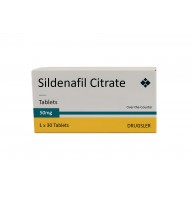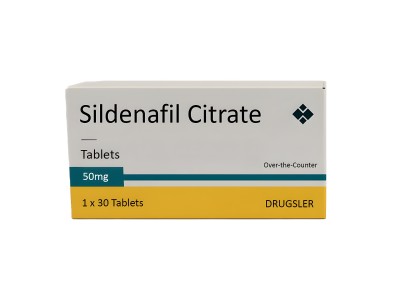Sildenafil, the active ingredient in Viagra, works primarily by inhibiting an enzyme called phosphodiesterase type 5 (PDE5). This enzyme plays a crucial role in regulating blood flow in the penis. Here’s a detailed explanation of how sildenafil functions in the body:
When a man is sexually aroused, nitric oxide (NO) is released in the erectile tissue of the penis. Nitric oxide activates an enzyme called guanylate cyclase, which increases levels of cyclic guanosine monophosphate (cGMP). Elevated cGMP levels cause the smooth muscle cells in the blood vessel walls of the penis to relax. This relaxation allows blood vessels to dilate, increasing blood flow into the spongy erectile tissues (corpora cavernosa) of the penis, resulting in an erection.
PDE5 is the enzyme responsible for breaking down cGMP. In conditions like erectile dysfunction (ED), the action of PDE5 can reduce the levels of cGMP, making it difficult to achieve and maintain an erection. Sildenafil works by inhibiting PDE5, thereby preventing the breakdown of cGMP. This inhibition helps maintain higher levels of cGMP in the penile tissue, promoting continued blood flow and sustaining an erection.
The effects of sildenafil typically begin within 30 to 60 minutes after oral ingestion, and its efficacy can last for up to four hours, though this can vary from person to person. It’s important to note that sildenafil requires sexual stimulation to be effective; it does not cause an erection spontaneously but enhances the natural erectile response to sexual arousal.
Sildenafil is metabolized primarily in the liver and excreted in the urine and feces. Its activity can be influenced by other factors, including food intake (especially high-fat meals, which can delay its absorption), other medications, and underlying health conditions.
Given its mechanism of action, sildenafil should be used under the guidance of a healthcare professional to ensure it is safe and appropriate based on an individual's health profile and medical history. Potential interactions with other medications, particularly nitrates used for chest pain, can cause severe side effects, emphasizing the importance of medical supervision.

